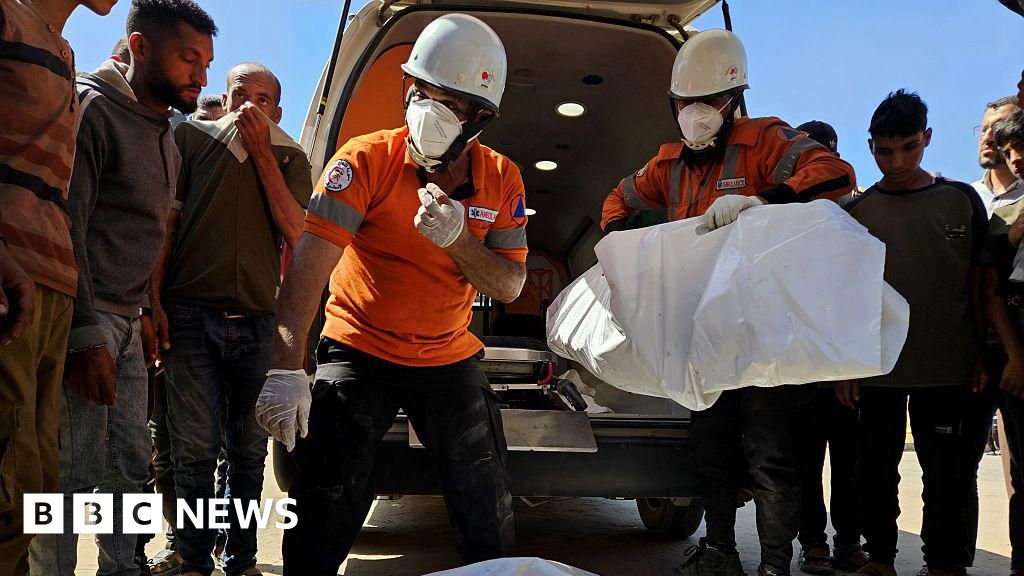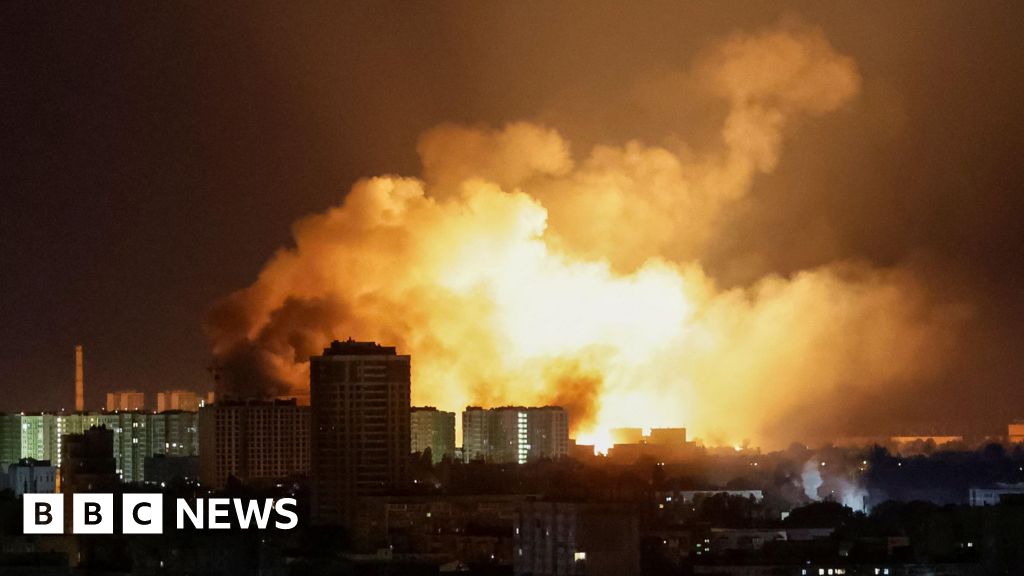ARTICLE AD BOX
By Joel Gunter
Serhiivka, Ukraine
Rayisa Horislavets decided to stay in Serhiivka. "I can't afford to rent an apartment somewhere safer," she said
The small village of Serhiivka, in eastern Ukraine, was completely quiet on Sunday - hardly a person on the streets or milling around the centre of the village, where you would normally find life.
There used to be 1,500 people here, before the full-scale invasion of Russian troops into Ukraine in February, and the renewed violence around the frontlines not far from here.
Today there are only about 300 residents left, and more are leaving as Russia renews its campaign to the east and south.
The population would have already skewed older, but few of the younger people who were here have stayed. It's a phenomenon seen in villages and towns around Ukraine, as younger generations have moved to safer areas while their parents and grandparents choose to stick it out.
"I have lived here all my life, I'm not going anywhere," said Mykola Luhynets, a 59-year-old carrying a rifle and wearing the armband of the territorial defence. Luhynets signed up and took a gun in February. "I will stay in Serhiivka and defend it if necessary," he said.
Mykola Luhynets has vowed to stay in the small town
In normal times, Serhiivka is an industrial and agricultural village - many of its working-age population are either farmers or staff at the local coal enrichment factory. It could be in the line of fire if the Russian forces decided to encroach beyond Donetsk towards the city of Dnipro.
"We only have simple shelters here but we have prepared them," said Valeriy Duhelnyy, 59, the head of the village and local territorial defence units. Duhelnyy is the equivalent of the village mayor, a position he has held since 2020.
"It's hard for older people here to hit the road," he said. "And maybe some are sentimental - they have stronger emotional ties to where they live. They don't want to die anywhere but home."
More than two million older people in the east of the country are at extreme risk as a result of the Russian assault on the country, according to the charity HelpAge International. There is particular concern among charities focused on supporting the elderly that older people have been unable to move out of harm's way, or feel unable to take on the hardship of upheaval.
The village has remained peaceful, but people like Mykola Luhynets are preparing to defend if necessary
Some simply do not have the money to move, or a place to go. "I'm a retiree and I don't have much, only a small pension," said Rayisa Horislavets, 66, who lives with her daughter in a small house in Serhiivka.
"I can't afford to rent an apartment somewhere safer. I can't rule out that something bad will happen here, but I just have no other options," she said. "Nobody needs me anywhere else, so I decided come-what-may I would stay here."
Horislavets used to speak regularly to her sister, who lives on the other side of the frontline that separates the territory still in Ukrainian control from the "Donetsk People's Republic" - the breakaway region where Russia has forged a separatist movement since 2014.
The phone connection to her sister died about two weeks ago, Horislavets said. But the relationship had already deteriorated, after her sister began telling her that she thought the news about Russia's attacks on Ukraine was fake.
Valeriy Duhelnyy, head of the village, sits on the monument to Ukrainian poet Taras Shevchenko
"She told me not to believe anything I see in our media, that it is the Ukrainians doing all the damage," Horislavets said. "I told her there are witnesses, we see what is happening in Kharkiv and elsewhere, but she doesn't believe me."
Her story is not uncommon in eastern Ukraine, where frontlines have divided families and Russian propaganda has convinced many on the Russian side that the atrocities and attacks reported in international media are fake - that Ukraine is the aggressor.
So far, Serhiivka has been peaceful. The remaining residents hope it will stay that way, though they are preparing the best they can for worse. They have seen the destruction of Kharkiv to the north and Mariupol to the south, and the grinding war not far from their doorstep in Donetsk.
Horislavets said that when that conflict began, she had taken care for her sister, who lived there.
"When bad things came to their home we supported them," she said. "Now bad things come to our home, and they do not support us." She would like to speak to her sister again. "Of course, she is my sister," she said. But not right now. "We would only fight."
Anna Pantyukhova contributed to this report
Photographs by Joel Gunter

 3 years ago
83
3 years ago
83








 English (US) ·
English (US) ·